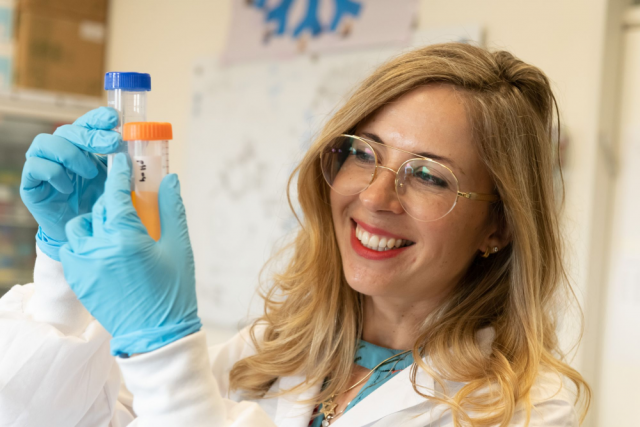Groundbreaking Study: Israeli researchers managed to develop alternatives for Current antibiotic therapy
This is the first time in history that researchers have managed to develop an alternative for the current antibiotic therapy.

In a groundbreaking study, Tel Aviv University researchers have developed a “biological antibiotic”, which in the future could serve as an alternative for the current known antibiotic therapy.
The research group, led by Dr, Natalia Freund and the doctoral candidate Avia Waston at the Sackler Medical Faculty, succeeded in isolating antibodies, which prevented the growth of tuberculosis germs in laboratory mice.
Antibodies are proteins produced by the immune system in response to vaccines or infections. They hold many advantages such as stability, specificity, and safety. For these reasons, antibodies are widespread in the clinic to treat autoimmune diseases, cancer, and viral infections such as coronavirus.
In the research, the antibodies were taken from a patient who recovered from tuberculosis disease.
It is the first time in history that researchers have managed to develop a “biological antibiotic” and demonstrate that human monoclonal antibodies can substitute traditional chemical antibiotics and protect mice from a pathogenic bacterial challenge.
The study was carried out in collaboration with two additional laboratories from the US and China and published in the prestigious scientific journal Nature Communications.
In the last century, antibiotics in use are chemical agents designed to block and destroy microbe cells. Those served as the primary treatment against germs, being both practical and cheap.
The researchers chose Tuberculosis, which is caused by infection of the bacilli Mycobacterium tuberculosis, as a test model.
For the first time, it successfully devised an effective treatment based on anti-bacterial antibodies naturally developed during infection. Another reason for tuberculosis choice is that although the vaccine against it was developed already 100 years ago and based on the attenuated bacillus bovis (BCG) strain, it is not effective in adults and does not prevent infection.
More and more disease varieties have developed in recent years that are resistant to the only treatment currently available, the treatment with antibiotics.
Tuberculosis germs are very infectious. They transfer in the air and damaging the lungs. The spread of resistant strains of tuberculosis that no medicine can combat is a real danger.
About one-quarter of the world’s population is infected by tuberculosis. in some countries the rates of drug-resistant strains peaking to 40%. In Israel, for example, there are approxametly 200 active tuberculosis cases per year.
According to Dr. Natalia Freund, “Antibiotics are highly productive and cost-effective, and therefore for the last years have been our only weapon against bacterial infections.
“Unfortunately, antibiotics have become less and less effective, and in the prominent cases of drug-resistance, physicians are empty-handed in finding a treatment for their patients.
“Therefore, new ways to kill bacteria are urgently needed. Advances in biological medicine have enabled us to rout the germs in new ways that are not based solely on antibiotics. Our study is an initial proof of employing monoclonal antibodies (derived from single cells) as an effective therapy in combat. They, therefore, allow,” stresses Dr. Freund.
Presently, given the study’s success, Dr. Freund’s team is investigating the possibility of extending the “biological” substitute for antibiotics to include other diseases. “The model that has proven successful in this study will enable us to extend our future work to include other diseases such as pneumonia and staphylococcus infections,” says Dr. Freund.
Read more about: Antibiotic resistance, Antibiotics, Tel Aviv University, Tuberculosis



